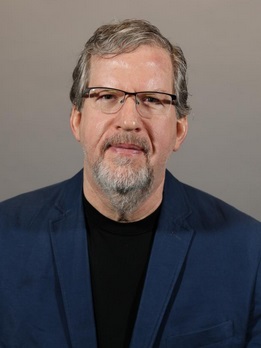Careers in Technology Fall Series 2024 - Paul Berger, PhD 01 October 8pm EST / 7 pm CST
On this celebratory IEEE Day, let us rejoice in the combined IEEE worldwide activities of 39 technical societies and 7 interdisciplinary councils on one side of the IEEE coin, balanced with local sections and student chapters, bringing a physical presence of IEEE to local communities. By the way, one could argue that IEEE also has a 3rd leg into humanitarian activities.
These S/C span a great swathe from hardware to software, including electronic devices, solar/wind energy production, power transmission, control theory, image compression, signal processing, and computer architecture. One could say this moves from applied physics to applied math.
However, this session drills down to predominantly 1 of these societies, the electron device society, where the field of semiconductor materials and devices thrives.
So, with the USA's Chips and Science Act to onshore semiconductor chip manufacturing, what does this mean to you and your communities. First, the Chips portion supports semiconductor companies to build or expand domestic chip production. The Science portion aims to perform workforce development to populate those factories.
Where will this new workforce come from and what do you need to do to prepare for your future? This talk aims to take a critical look at the opportunities before you in the semiconductor industry.
With time permitting and audience interest, some discussion in humanitarian roles IEEE plays will also be discussed.
Date and Time
Location
Hosts
Registration
-
 Add Event to Calendar
Add Event to Calendar
Loading virtual attendance info...
Speakers
Paul Berger, PhD
Biography:
Paul R. Berger is a Professor in Electrical & Computer Engineering at Ohio State University and Physics (by Courtesy). He is also a Distinguished Visiting Professor at Tampere University in Finland. He received the B.S.E. in engineering physics, and the M.S.E. and Ph.D. (1990) in electrical engineering, respectively, all from the University of Michigan, Ann Arbor. Currently, Dr. Berger is actively working on quantum tunneling devices, printable semiconductor devices & circuits for IoT, bioelectronics, novel devices, novel semiconductors and applied physics.
Formerly, he worked at Bell Laboratories, Murray Hill, NJ (1990-’92) and taught at the University of Delaware in Electrical and Computer Engineering (1992-2000). In 1999, Prof. Berger took a sabbatical leave while working first at the Max-Planck Institute for Polymer Research, Mainz, Germany and then moved on to Cambridge Display Technology, Ltd., Cambridge, United Kingdom. In 2008, Prof. Berger spent an extended sabbatical leave at IMEC (Interuniversity Microelectronics Center) in Leuven, Belgium while appointed as a Visiting Professor in the Department of Metallurgy and Materials Engineering, Katholieke Universiteit Leuven, Belgium. Prof. Berger was also a Finnish Distinguished Professor (FiDiPro) at Tampere University of Technology (2014-2019), and he continues as a Fulbright-Nokia Distinguished Chair in Information and Communications Technologies (2020-2022) [https://engineering.osu.edu/news/2020/04/berger-earns-fulbright-nokia-d… the newly merged Tampere University.
He has authored over 240 referred publications and presentations with another ~100 plenary, keynote, invited talks, 5 book sections and been issued 25 patents with 3 more pending from 60+ disclosures with a Google Scholar H-index of 35. Some notable recognitions for Dr. Berger were an NSF CAREER Award (1996), a DARPA ULTRA Sustained Excellence Award (1998), Lumley Research Awards (2006, 2011), a Faculty Diversity Excellence Award (2009) and Outstanding Engineering Educator for State of Ohio (2014). He has been on the Program and Advisory Committees of numerous conferences, including the IEDM, DRC, ISDRS, EDTM and IFETC meetings. He will be hosting the IFETC in ’21 as General Chair. He currently is the Chair of the Columbus IEEE EDS/Photonics Chapter and Faculty Advisor to Ohio State’s IEEE Student Chapter. In addition, he is an elected member-at-large to the IEEE EDS Board of Governors (19’-21’), where he is also Vice Present of Strategic Directions (20’-21’) and a member of the EDS Finance Committee.
He is an IEEE EDS Fellow (2011) and Distinguished Lecturer (since 2011), as well as a Senior member of the Optical Society of America. He has received $9.9M in USA funding as lead PI, with an additional $26M as Co-PI in USA and €8.8M in funding through his Finnish partnerships. Altogether, he has received ~$47.5M in research funding.
Prof. Berger has established significant humanitarian engineering projects across the world with an emphasis on solar-power and sustainability. After completing a 6 year presence in Haiti to electrify remote schools with solar powered LED lighting as an Alternative Spring Break, Berger re-established two new international programs. (1) One through OSU’s Office of International Affairs, has traveled to Arusha, Tanzania with a group of engineering students from different majors to design, build and install a solar powered LED lighting system for an orphanage. [https://ece.osu.edu/news/2019/08/solar-engineering-service-trip-harness…]; and (2) Additionally, through IEEE’s Humanitarian Activities Committee, Berger also proposed, and was funded, to provide solar-powered desalinization for the indigenous Wayúu peoples living in the Guajira peninsula desert. Also, the IEEE Electron Device Society has provided Berger additional funds to extend the Colombia project into 2020. [https://ece.osu.edu/news/2019/01/ece-professor-triggers-solar-solution-…].
Berger has been a great advocate of undergraduate research, particularly emphasizing many women, minorities and veterans. He has recruited and trained a total 125 undergraduate researchers, which he is actively advising or graduated to completion over his academic career. For instance, since joining Ohio State University in 2000, he is, or has, advised 96 undergraduate researchers. From within these 96 active or alumni students, 26 are women (27%); 8 are minorities (8.3%) and 30 have gone on to complete or pursue a Ph.D. (31.6%) with an additional 3 having become medical doctors or patent attorneys. Some former REUs are now professors at Stanford and Rochester Institute of Technology. Berger was also awarded the Faculty Diversity Excellence Award (2009) for these efforts and will continue to aggressively recruit diversity.


